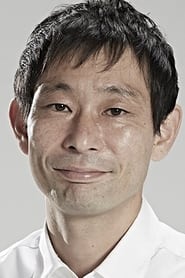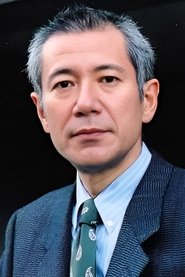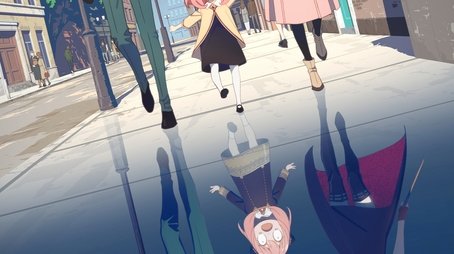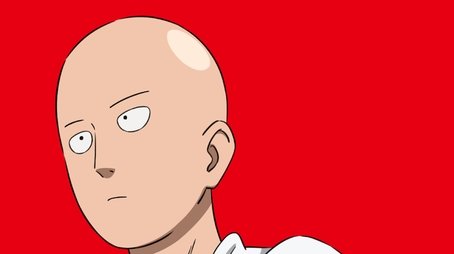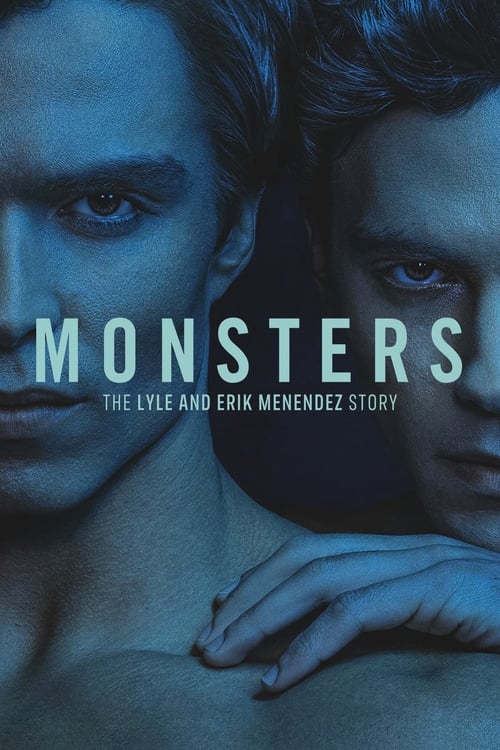
Ask Your Own Question
What is the plot?
Hiromi Minagawa lives a happy life with her husband Keigo and their daughter Akari, who is about to celebrate her third birthday. On that day, Akari requests pizza from the delicatessen "YUKI Deli," so Hiromi buys it for her. That night, after taking a bite of the pizza, Akari suddenly suffers severe distress. Hiromi rushes her to the hospital, but despite efforts, Akari dies. The cause of death is determined to be anaphylactic shock caused by shrimp, an allergen Hiromi had been very careful to avoid for Akari.
The police investigation into the incident reveals uncertainty about how shrimp ended up in the pizza, despite Hiromi's precautions. At a press conference, Asahi, the president of "YUKI Deli," makes a statement that deeply upsets Hiromi and her family. The public backlash forces "YUKI Deli" into bankruptcy, and Asahi along with his partner Mochizuki Kosuke lose their jobs. The grief and guilt overwhelm Hiromi, leading her to divorce Keigo and live alone.
One year later, Hiromi attends a cooking class where she unexpectedly meets Asahi, the former president of "YUKI Deli." Asahi is now a single father raising two daughters: Ririko, a high school freshman, and Moeko. Hiromi's grief has transformed into a desire for revenge, and she begins to wait for an opportunity to make Asahi suffer the same pain she endured.
The story then follows Hiromi's calculated steps as she interacts with Asahi and his family, carefully planning how to inflict emotional pain on him. She observes Asahi's life, noting his struggles as a single parent and the challenges he faces. Hiromi's internal conflict grows as she balances her desire for revenge with the remnants of her maternal love and the memories of Akari.
Hiromi's actions escalate as she subtly disrupts Asahi's family life, creating situations that cause distress and tension. She manipulates circumstances to isolate Asahi and his daughters, aiming to replicate the loneliness and loss she experienced. Each move is deliberate, reflecting her deep-seated need for justice and retribution.
As the tension builds, Asahi begins to suspect that Hiromi's presence is not coincidental. He confronts her, leading to a series of emotionally charged exchanges where both reveal their pain and regrets. The confrontation forces Hiromi to face the consequences of her revenge-driven actions and the impact on innocent people around them.
In the climax, Hiromi must decide whether to continue her path of vengeance or find a way to heal from her grief. The resolution involves a poignant moment where Hiromi acknowledges the futility of revenge and the importance of moving forward. The series ends with Hiromi and Asahi reaching a fragile understanding, both carrying the scars of their past but looking toward a tentative future.
What is the ending?
The ending of the TV show Since I Took You Away centers on the resolution of the complex relationships between Hiromi, Miumi (who returns as Moeko), and other key characters, culminating in emotional confrontations and decisions about justice and forgiveness. Hiromi, struggling with guilt and loss, faces arrest but is conflicted due to his feelings for Moeko. The story closes on the unresolved tension between Hiromi and the daughter he kidnapped, highlighting themes of parent-child love and atonement.
Expanded narrative of the ending, scene by scene:
The final episode opens with Miumi, now living under the name Moeko, returning to the Yuki family home. She gradually adapts to her new life and environment, showing signs of acceptance and tentative peace. Meanwhile, Asahi, who is preparing to launch a project called "Switchback" in the Kansai region, is pressured by Kido to arrest Hiromi immediately to resolve the ongoing conflict. However, Asahi hesitates, torn by his empathy for Moeko and the complicated emotions surrounding Hiromi's case.
Parallel to this, Suna, a weekly magazine reporter, wrestles with the decision to publish an exposé about the food allergy incident that triggered much of the drama. She is conflicted because the truth implicates her own father, Washio, who has protected the secret until now. This subplot adds layers of moral ambiguity and personal loyalty to the unfolding story.
Yukiko visits Hiromi, who has become despondent and lost his will to live after Miumi's disappearance. In a heartfelt conversation, Yukiko expresses her feelings to Hiromi, who is burdened by guilt and contemplates atonement for the pain caused to Miumi and others. This scene reveals Hiromi's internal struggle and his desire for redemption.
The climax involves Hiromi's kidnapping of the daughter of the person he sought revenge against. Despite the crime, Hiromi's love for Miumi, who was raised under his care, complicates the narrative. The father and daughter, now estranged and unable to meet, embody the tragic consequences of the conflict.
The episode closes without a clear resolution to Hiromi's fate, leaving his arrest uncertain due to Asahi's indecision. Moeko's adjustment to her new life suggests a fragile hope for healing, but the scars of past actions remain. The story ends emphasizing the painful complexities of parent-child relationships, loss, and the quest for forgiveness.
Main character fates at the end:
- Hiromi: Emotionally broken and conflicted, facing possible arrest but not definitively taken into custody by episode's end.
- Miumi/Moeko: Returned and adapting to her new life with the Yuki family, symbolizing a tentative new beginning.
- Asahi: Torn between duty and compassion, hesitates to arrest Hiromi.
- Suna: Struggles with exposing a painful family secret, reflecting the moral dilemmas in the story.
- Yukiko: Acts as a voice of emotional support and confrontation for Hiromi.
The ending scene by scene captures the emotional weight and unresolved tensions that define the show's exploration of love, loss, and justice.
Is there a post-credit scene?
The TV show Since I Took You Away (2025) does not have any known post-credit or mid-credit scenes. None of the available search results mention a post-credit scene for this show, and the detailed references to post-credit scenes pertain to other 2025 horror titles like I Know What You Did Last Summer and Drop, not Since I Took You Away.
Specifically, the sources discuss post-credit scenes for I Know What You Did Last Summer (2025), which has a notable mid-credit scene, and confirm that Drop (2025) has no post-credit scene. However, there is no information or indication that Since I Took You Away includes any such scene.
Therefore, based on current information, Since I Took You Away does not feature a post-credit scene.
What is the significance of the pizza from YUKI Deli in the plot of Since I Took You Away?
The pizza from YUKI Deli is central to the plot as it causes the death of Hiromi Minagawa's daughter, Akari, due to anaphylactic shock from shrimp. Despite Hiromi's careful checking for allergens, the pizza contained shrimp, leading to a police investigation and public backlash against YUKI Deli, which ultimately goes bankrupt. This incident triggers Hiromi's grief and desire for revenge against the deli's president, Asahi.
How does Hiromi's relationship with Asahi evolve throughout the series?
Hiromi initially harbors deep hatred and a desire for revenge against Asahi, the former president of YUKI Deli, after her daughter's death. One year later, they meet again in a cooking class, where Asahi is raising his two daughters alone. Hiromi's grief transforms into a complex emotional struggle as she waits for an opportunity to make Asahi suffer the same pain she endured.
Who is Miumi (Nakakoshi Miumi) and what is her role in the story?
Miumi, also known as Nakakoshi Miumi, is the daughter of Asahi, who starts living with Hiromi three years after Akari's death. She is six years old and has no memory of her life before age three. Hiromi cares for Miumi as if she were her own daughter, but keeps her out of the public eye. Miumi's presence complicates Hiromi's life, especially regarding family registry issues and her interactions with Asahi's ex-wife and Hiromi's ex-husband.
What challenges does Hiromi face regarding Miumi's family registry and custody?
Hiromi faces legal and bureaucratic challenges in obtaining Miumi's family registry before Miumi starts elementary school. She asks her ex-husband Keigo to provide false testimony to help secure the registry and seeks a DNA sample from Emiko, Asahi's ex-wife, to facilitate a DNA test. These actions highlight Hiromi's desperation to protect and legitimize her relationship with Miumi.
How does Hiromi's personal life change after Akari's death?
After Akari's death, Hiromi divorces her husband Keigo and chooses to live alone, overwhelmed by grief and guilt. She continues to work as a cook at a nursery school and later attends a cooking class where she encounters Asahi. Her life becomes consumed by her desire for revenge and her complex relationship with Miumi, whom she raises as her own daughter.
Is this family friendly?
The TV show "Since I Took You Away" (2025) is not specifically described in the search results regarding its family-friendliness or content warnings. However, based on the general context of similar emotionally intense dramas mentioned, it likely contains some mature themes.
Potentially objectionable or upsetting aspects for children or sensitive viewers might include:
- Emotional and sad scenes that could be intense or tear-inducing.
- Themes involving complex family dynamics and relationships.
- Possible scenes with emotional distress or conflict.
No explicit mention of violence, sexual content, or strong language was found specifically for this show, but the presence of "very sad scenes" suggests it may be more suitable for older teens or adults rather than young children or very sensitive viewers.
Without direct content warnings or parental guides for "Since I Took You Away," caution is advised for family viewing, especially with younger children or those sensitive to emotional drama.










